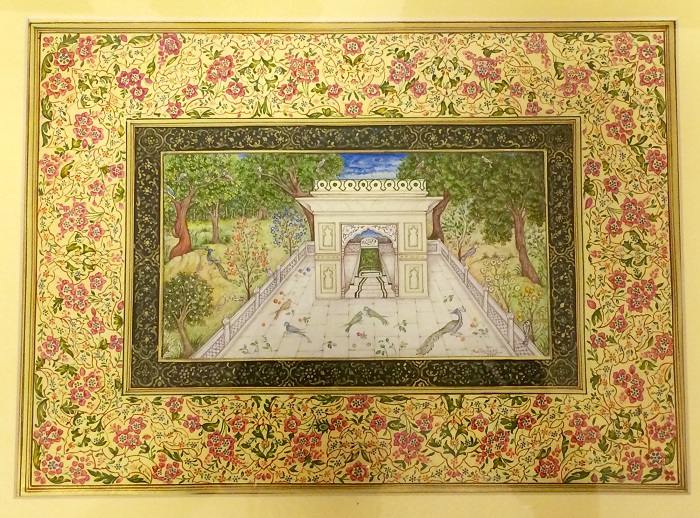FWP:
For background see S. R. Faruqi's choices. This verse is NOT one of his choices; I thought it was worth noting and have added it myself. For more on Ghalib's unpublished verses, see the discussion in {4,8x}.
For discussion of Ghalib's relationship with Bedil, see {8,5x}.
There doesn't seem to be much going on in this verse. I've added it to the website mostly because it's part of the ample evidence of how deeply the young Ghalib admired Bedil, and then how systematically he later excluded such admiring verses from his divan.

Asi:
If the tomb-tablet of Hazrat Bedil would somehow be obtained, then Asad would demand from it itself a mirror for the adornment of meanings; that is, would receive benefit from it.
== Asi, p. 227